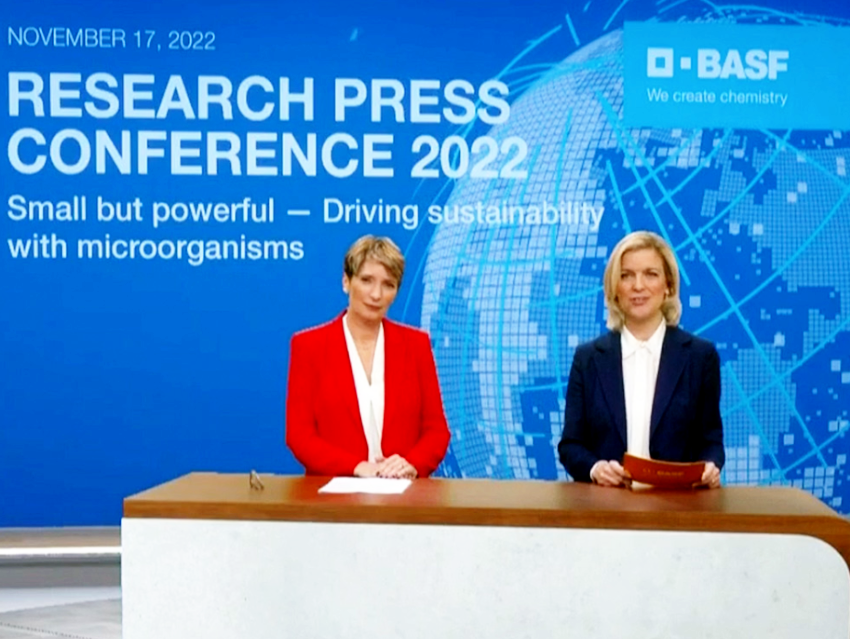The chemical industry is undergoing fundamental change. This is why yesterday’s BASF research press conference was themed around sustainability and innovation. Many of the technologies that will make a climate-neutral society possible have not yet been invented. Thus, it is important to overcome future challenges by being open to technologies and incorporating alternative technology concepts, stated Dr. Melanie Maas-Brunner, member of the Board of Executive Directors and Chief Technology Officer at BASF SE.
BASF employs around 10,000 people worldwide in research and development. In 2021, the company invested around €2.2 billion in the development of sustainable products and new fields of technology. The company generated more than €11 billion in sales with products launched by BASF in the last five years. Within the chemical industry, the company leads in terms of the number and quality of its patents. In 2021, 45 % of the company’s patent applications were related to innovations with a particular focus on sustainability. This trend is growing. The company also aims to increase its sales and earnings in the long term from products that significantly contribute to sustainability. Examples include generating CO2-free hydrogen, electrifying production processes, and advancing the circular economy, as well as tapping new raw material sources and using digital tools even more efficiently.
An important prerequisite for this is alliances with outside scientists but also with all players in business, politics, and society. Alliances between companies and legislators are particularly important because good framework conditions are an important prerequisite.
One project featured at the press conference aims to tap into the potential of gas fermentation to produce chemicals for chemical value chains. BASF and the U.S. company LanzaTech are working together on processes in which bacteria use gaseous carbon sources such as CO and CO2 as raw materials. The carbon can come from waste gases from steel mills, refineries, and chemical plants, but also from household waste that is converted into gas. LanzaTech already has production plants in China producing ethanol using this technology. Another plant will soon come on stream in Belgium. The two companies want to use gas-fermentative processes to produce higher alcohols and other intermediates.
Close links with universities were also pointed out. The ecovio® mulch film, for example, is certified biodegradable in the soil and helps farmers achieve higher yields. After harvesting, the film can simply be plowed under and is degraded in the soil by microorganisms. BASF researchers, together with scientists from ETH Zurich, Switzerland, have studied how and why the film degrades in the soil, both in the laboratory and in the field. New analytical methods were developed for this purpose, which proved that the carbon from the film is biologically converted into carbon dioxide and biomass. According to the company, BASF is a pioneer and leader in the digital modeling of predictive biodegradation. This allows them to work with customers to develop customized biodegradable products for specific applications.
Photo: Dr. Melanie Maas-Brunner, Member of the Board of Executive Directors
and Chief Technology Officer at BASF, (left) and Dr. Nina Schwab-Hautzinger,
Corporate Communications & Government Relations, © BASF
- BASF SE, Ludwigshafen, Germany



